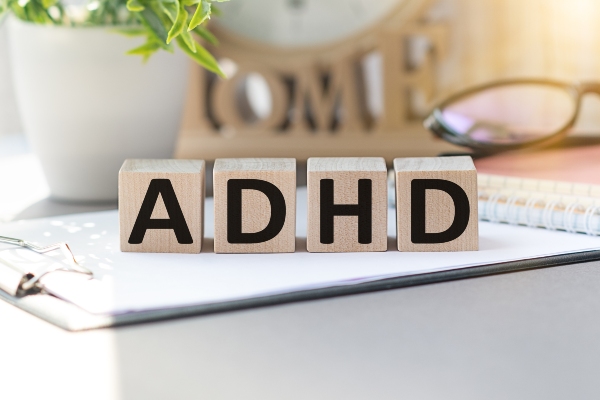 Attention-deficit/hyperactivity disorder (ADHD) is a neurodevelopmental disorder that affects millions of people worldwide. Common symptoms of ADHD include the inability to pay attention, acting impulsively, and having uncontrollable energy. ADHD significantly impacts how a person goes about their daily life. Fortunately, many treatment options are available to manage ADHD symptoms and improve overall functioning.
Attention-deficit/hyperactivity disorder (ADHD) is a neurodevelopmental disorder that affects millions of people worldwide. Common symptoms of ADHD include the inability to pay attention, acting impulsively, and having uncontrollable energy. ADHD significantly impacts how a person goes about their daily life. Fortunately, many treatment options are available to manage ADHD symptoms and improve overall functioning.
5 common types of ADHD treatment
1. Medication
Prescription medication is the most common type of ADHD treatment. A psychiatrist often prescribes psychostimulants like methylphenidate (Ritalin) and amphetamine-based medications (Adderall) to help manage ADHD symptoms. These medications increase the levels of neurotransmitters (dopamine) in the brain. They improve the patient's focus, attention, and impulse control. Similar to how dopamine is naturally produced in the brain, stimulants gradually increase dopamine to provide therapeutic effects.
Nonstimulant medications, such as atomoxetine (Strattera) and guanfacine (Intuniv), are also available. A psychiatrist may prescribe nonstimulants for those with severe side effects from stimulant medication or co-existing conditions with their ADHD. Sometimes, kids and teens can benefit from a combination of stimulant and nonstimulant medication to manage their ADHD symptoms. Regardless, the patient should work with a psychiatrist to determine which medication suits their needs and treatment goals.
2. Behavioral therapy
Behavioral therapy is an essential component of ADHD treatment and is often combined with medication. This type of therapy helps individuals develop practical coping strategies to manage symptoms and improve functioning. The most commonly used behavioral therapy for ADHD is cognitive behavioral therapy (CBT). CBT focuses on identifying and changing negative thought patterns and behaviors. CBT helps individuals learn organization, time management, and problem-solving skills, significantly reducing ADHD-related challenges.
3. Parent education
ADHD affects people of all ages and genders. Around 9.8% of children and an estimated 13% of adolescents in the United States have been diagnosed with ADHD. An ADHD diagnosis can have a significant impact on family dynamics. While it is important for young patients to have access to treatment, it is equally important for parents to receive training and education to understand and effectively manage their child's symptoms.
A psychiatrist can connect parents with programs to improve their communication with their children. This can help them establish clear expectations and routines with their children. By empowering parents with the knowledge and skills to support their child with ADHD, these programs can help create a more positive and structured home environment.
4. School support and accommodations
Many people with ADHD start to experience symptoms as young children. Going untreated, ADHD can greatly affect their academic performance. Parents should work with their child's school to ensure they have appropriate support to succeed academically. Teachers and parents can work together to develop Individualized Education Programs (IEPs) and 504 plans to outline specific accommodations and support services tailored to the student's needs. Some common classroom accommodations include:
- Extra time for homework, quizzes, and tests.
- Specialized seating placement.
- Structured and supervised breaks from the classroom to “calm down” or “reset.”
- Short-term goals.
- Pair written instructions with oral instructions.
5. Lifestyle modifications
Certain lifestyle modifications can help people with ADHD manage their symptoms effectively. Research shows that regular exercise can help improve attention and reduce impulsiveness, making it an important component of ADHD treatment. A healthy diet of consistent and nutritious meals and reduced consumption of processed foods can also help symptom management. In addition, it can be helpful to establish a consistent bedtime routine, and creating an organized environment can minimize distractions and increase productivity.
Conclusion
With proper treatment, you can learn to manage your symptoms of ADHD and lead a fulfilling and productive life. If you are curious about ADHD treatments or have further questions, contact our office. Future Psych Ketamine Clinics is here to answer your questions and can schedule you for a consultation. Find relief for your ADHD and make an appointment today.
Request an appointment or call Future Psych Ketamine Clinics at 843-788-9718 for an appointment in our Myrtle Beach office.
Related Posts
Attention-deficit/hyperactivity disorder, or “ADHD,” is a mental health condition that affects people of all ages. However, with the help of psychiatry, ADHD treatment is more than obtainable. If you or someone you love has been struggling, psychiatric treatment can help maximize one’s potential and live a healthy life.There are three types of ADHD one can…
If you have been diagnosed with adult attention-deficit/hyperactivity disorder, or “ADHD,” you may benefit from ADHD treatment. While every client is different, most struggle with the hallmark symptoms of ADHD: trouble focusing, difficulty completing tasks, and poor impulse control. A psychiatrist will develop a plan to manage the symptoms of ADHD that interfere with your…
Pregnancy is a transformative and exciting time for many people. However, for those with attention deficit hyperactivity disorder (ADHD), it can present new and unique challenges. ADHD is a neurodevelopmental disorder that affects people of all genders and ages, and it can have significant implications for individuals navigating pregnancy.A main concern for pregnant patients with…
